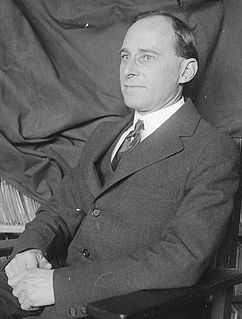A Quote by Arthur Guiterman
The stones that critics hurl with harsh intent, a man may use to build his monument.
Related Quotes
Very well, then, where do we arrive? Where do we arrive with our respect, our homage, our filial affection? At Adam! At Adam, every time. We can't build a monument to a germ, but we can build one to Adam, who is in the way to turn myth in in fifty years and be entirely forgotten in two hundred. We can build a monument and save his name to the world forever, and we'll do it!
Anytime you adapt work of somebody who you respect, as much as I respect him, it's an enormous responsibility. In honoring that responsibility, what we try to do is to continually use his work, and the writing that he did about his life and his work, as our guide. That starts with his intent for what he was trying to express when he wrote it, and it extends to his intent overall.
So long as men desire to live together, no man may initiate the use of physical force against others. . . . When a man attempts to deal with me by force, I answer him by force. It is only as retaliation that force may be used and only against the man who starts its use. No, I do not share his evil or sink to his concept of morality: I merely grant him his choice, destruction, the only destruction he had the right to choose: his own.
Indeed, the best books have a use, like sticks and stones, which is above or beside their design, not anticipated in the preface,not concluded in the appendix. Even Virgil's poetry serves a very different use to me today from what it did to his contemporaries. It has often an acquired and accidental value merely, proving that man is still man in the world.
What is the quality of your intent? Certain people have a way of saying things that shake us at the core. Even when the words do not seem harsh or offensive, the impact is shattering. What we could be experiencing is the intent behind the words. When we intend to do good, we do. When we intend to do harm, it happens. What each of us must come to realize is that our intent always comes through.
A man has a right to use a saw, an axe, a plane, separately; may he not combine their uses on the same piece of wood? He has a right to use his knife to cut his meat, a fork to hold it; may a patentee take from him the right to combine their use on the same subject? Such a law, instead of enlarging our conveniences, as was intended, would most fearfully abridge them, and crowd us by monopolies out of the use of the things we have.


































